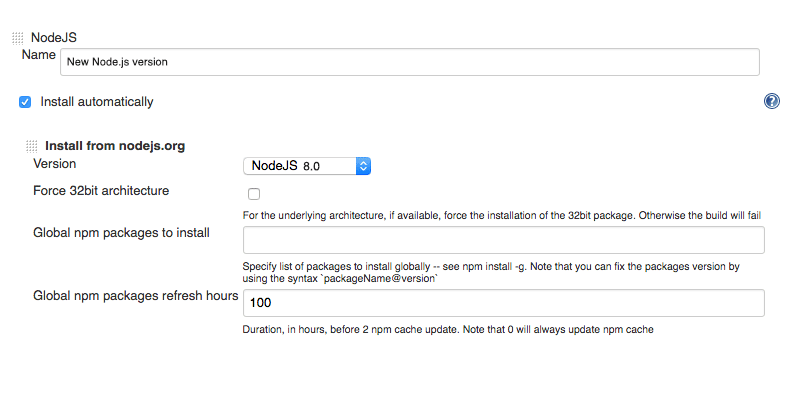Use a Given Version of Node.js on a Jenkins Project
One developer offers an overview of plugin that makes it easier to use the popular DevOps tool, Jenkins, with the equally popular Node.js.
Join the DZone community and get the full member experience.
Join For FreeLike many others, we’re using Jenkins at my organization for tasks like testing or deploying some of our projects. Recently, I had to figure out a way to have a different Node.js version on a Jenkins project bound to a branch I was working on.
What Is Jenkins?
Jenkins is a self-contained, open source automation server which can be used to automate all sorts of tasks related to building, testing, and delivering or deploying software. - Jenkins Docs
The Scenario
So I had a branch I was working on and needed a different Node.js version for that, mostly for trying out things, without risking having to change any other Jenkins project configuration.
Specifically, I had a branch with some tests based on Jest and Puppeteer that rely on async/await which is available from Node.js 7.6. Whilst the Node.js version installed on the Jenkins machine was lower than that, I needed a newer Node.js for my Jenkins project that my branch was bound to.
The solution I found was to install the Jenkins NodeJS Plugin, which already had some of the features and functionalities I was looking for.
 The Jenkins project with a given Node.js 8.0 version.
The Jenkins project with a given Node.js 8.0 version.
So, what Jenkins NodeJS Plugin does is:
- It allows you to create as many Node.js installations “profiles” as you want. Let’s say you could have some installations to play with like legacy 6x, 8x, or the latest stable Node.js.
- It auto installs the given version of Node.js, on every Jenkins project where it will be needed.
- It allows you to globally install some npm packages inside each Node.js installation and these npm packages will be made available to the PATH: those could be Gulp, Webpack, you name it.
- It allows for the execution of Node.js scripts under the given Node.js installation.
That’s pretty much it, hope you find this useful!
Published at DZone with permission of Catalin Red, DZone MVB. See the original article here.
Opinions expressed by DZone contributors are their own.

Comments